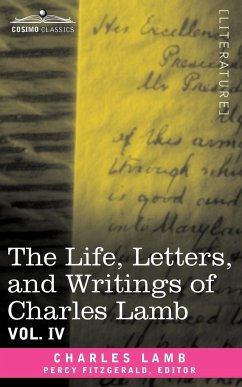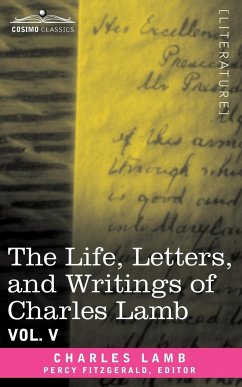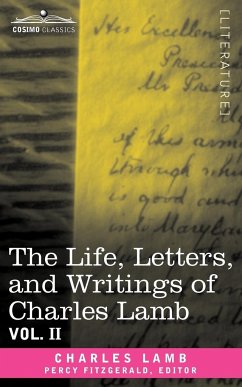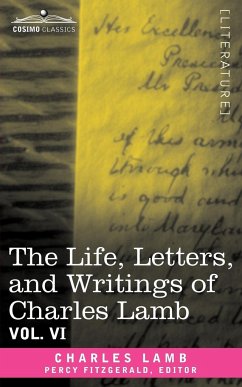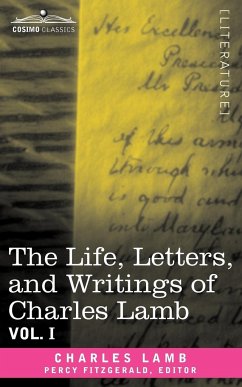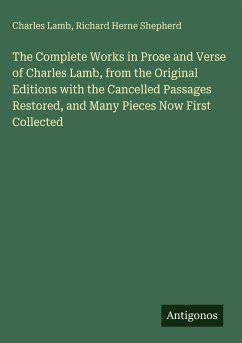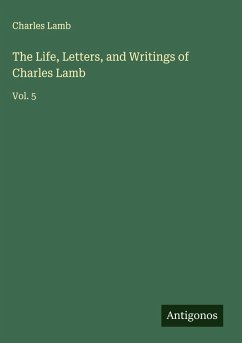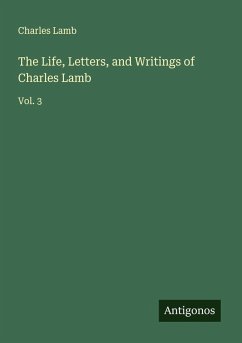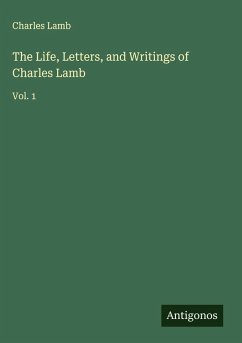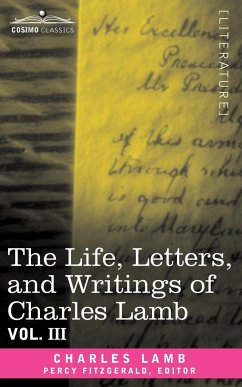
The Life, Letters, and Writings of Charles Lamb, in Six Volumes
Vol. III
Herausgeber: Fitzgerald, Percy
Versandkostenfrei!
Versandfertig in 1-2 Wochen
32,99 €
inkl. MwSt.

PAYBACK Punkte
16 °P sammeln!
Biographer E.V. Lucas deemed him the most lovable figure in English literature, but British poet, playwright, and essayist CHARLES LAMB (1774-1834) was unappreciated during his own lifetime. That Lamb is fondly remembered today is partly the result of the six-volume collection of his work edited and annotated by Irish author and critic PERCY HETHRINGTON FITZGERALD (1834-1925) and first published in 1875. Friend to Coleridge and Wordsworth and author of all manner of delightful works from playful verse for children to insightful essays on Elizabethan drama, Lamb is a hidden treasure of English ...
Biographer E.V. Lucas deemed him the most lovable figure in English literature, but British poet, playwright, and essayist CHARLES LAMB (1774-1834) was unappreciated during his own lifetime. That Lamb is fondly remembered today is partly the result of the six-volume collection of his work edited and annotated by Irish author and critic PERCY HETHRINGTON FITZGERALD (1834-1925) and first published in 1875. Friend to Coleridge and Wordsworth and author of all manner of delightful works from playful verse for children to insightful essays on Elizabethan drama, Lamb is a hidden treasure of English literature, as his entertaining writings reveal. Complete with Fitzgerald's commentary on Lamb's life and legacy, this is a must-read set for lovers of 19th-century English classics. Volume III includes Lamb's humorous and witty essays that appeared under the pseudonym "Elia" in London Magazine, including: ¿ "The South Sea House" ¿ "Oxford in the Vacation" ¿ "The Two Races of Men" ¿ "New Year's Eve" ¿ "Imperfect Sympathies" ¿ "Valentine's Day" ¿ "Modern Gallantry" ¿ and many more.



